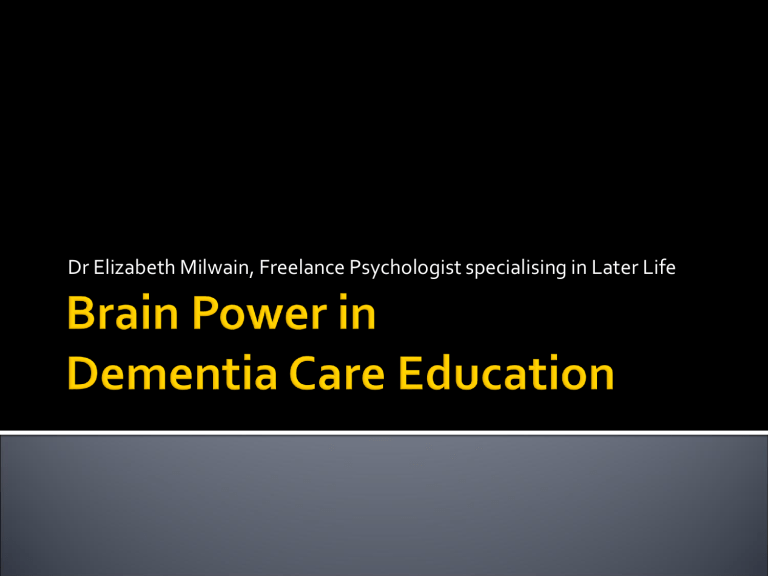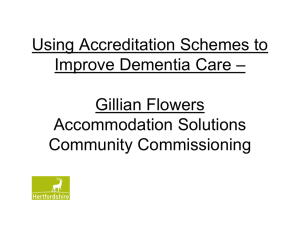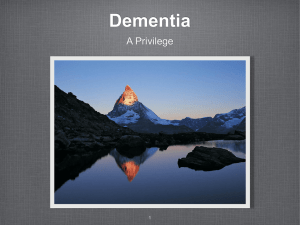Elizabeth Milwain Brain power in dementia care education

Dr Elizabeth Milwain, Freelance Psychologist specialising in Later Life
ANNUAL COST RESEARCH FUNDING
Research investment has increased significantly
Public profile of dementia is also rising
Increasing number of reports, policies and other drivers
Increasing number of celebrities and other high profile people talking about dementia
The general public are starting to ask questions and want to know more
Battle of the ‘models’ is making things worse:
Biomedical
▪ dominates research and health care
Psychosocial
▪ dominates frontline education of the dementia care workforce and some aspects of social care
They would say this is not an either/or issue – they want the benefits of both models:
Cause – mostly biomedical
Cure – mostly biomedical
Care – mostly psychosocial
People need to understand dementia is an organic condition and understand the nature of the neurological damage
MUST link from the textbook facts to the inner experience of the person with dementia
People get real ‘eureka’ moments from quite simple bits of factual material
When the brain is taught in the right way it has a big impact on the attitudes essential to the personcentred approach
Doing
Control
Knowing
4/12/2020 Elizabeth Milwain - elizabeth@brainscapes.co.uk
7
Dysexecutive behaviour:
Purposeless
Disinhibited
Stereotyped, repetitive
Inflexible
Inefficient
Distractible
Loss of initiative (apathy)
Self-centred
4/12/2020 Elizabeth Milwain - elizabeth@brainscapes.co.uk
8
Care providers provide better care if they:
Understand the basic organisation of the human brain and how dementia impacts on its functions;
Understand what this means for the experience and behaviour of people with dementia;
Including how the brain damage is in constant interaction with psychological and social factors
D = NI + H + B + P + SP
Not rigorous
Anecdotal from feedback of delegates
Small 6 month surveys suggest benefits endure
Those who have commissioned have commissioned again
201: Understanding dementia
202: Person-centred approaches
205: Communication & relationships
207: Diversity, equality & inclusion
PERSON with dementia not person with
DEMENTIA
Do we need irrefutable research evidence before we change our approach?
Martin Buber:
I-it
I-Thou
It is an undeniable fact, though hard to describe in intelligible terms, that there are some people who reveal themselves as present.....when we are in pain or in need....while there are other people who do not give us this feeling, however great is their goodwill.
The truth is....the material gift, the visible action, do not necessarily witness to presence....Presence is something that reveals itself immediately and unmistakeably in a look, a smile, an intonation or a handshake.
Take every I-thou opportunity
What we do is important, but how we do it is just as important
It does not cost extra time or extra money
‘Every little helps’
Will add up into a big difference in how people feel about living with dementia
If you would like to know more, please get in touch
Dr Elizabeth Milwain
• 22 Bankfield Drive
• Shipley
• West Yorkshire BD18 4ADth
• elizabeth@brainscapes.co.uk
Telephone
• 01274 583364 (home)
• 07766 220725 (mobile)









